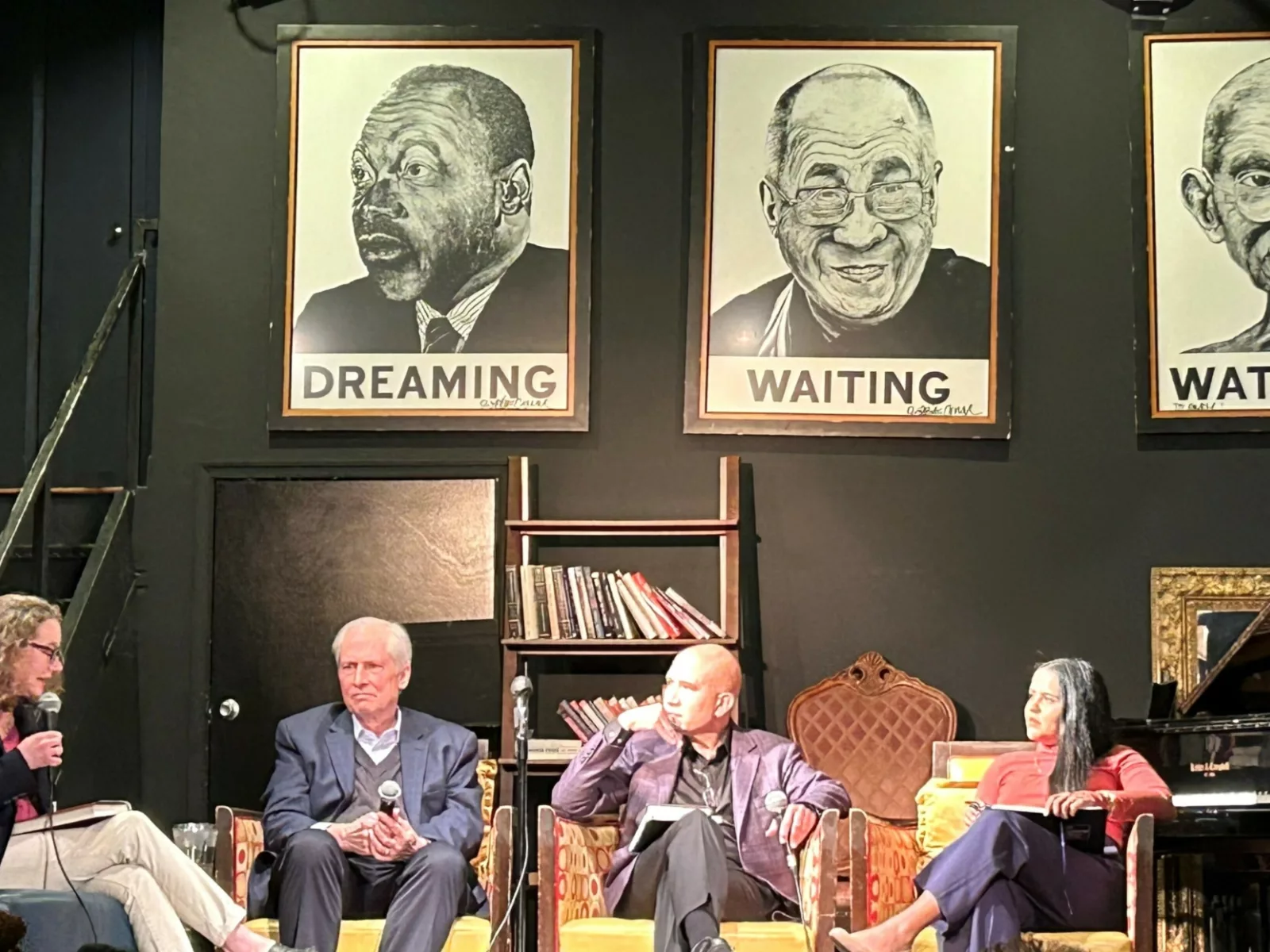Despite fear-mongering media and misleading partisan attacks, many “tough-on-crime” candidates fell flat and criminal justice reformers prevailed in state and local races across the country Tuesday. While votes are still being tallied, there is mounting evidence that by and large voters rejected outdated policies and candidates who ran campaigns centered on fear of crime and embraced the reality that reform and safety work hand-in-hand.
Bail Reform
In Illinois, where the Pretrial Fairness Act (part of the larger SAFE‑T package of criminal justice reforms) goes into effect on Jan. 1, 2023, Gov. J.B. Pritzker and Attorney General Kwame Raoul — both backers of the SAFE‑T Act — easily won re-election, as did almost all state legislators who voted for the act. Moreover, there was some concern that Democrats could lose their majority on the State Supreme Court, thus imperiling criminal justice reforms. However, this fear proved to be unfounded, with Democrats winning both races and retaining control of the court.
In New York, Gubernatorial candidate Lee Zeldin — who made repealing bail reform (passed in 2019) a cornerstone of his campaign and in general ran a campaign based on fear-mongering around crime — lost to Kathy Hochul. Similarly, bail reform opponent Michael Henry lost the attorney general race to Letitia James.
In New Mexico — where voters passed bail reform via a constitutional amendment in 2016 — incumbent Congressperson Yvette Herrell, who ran a tough-on-crime campaign, lost to Gabe Vasquez, who has voiced support for police reforms and accountability.
Voters in Harris County, Texas, largely rejected candidates who opposed local misdemeanor bail reform, re-electing Lina Hidalgo as Harris County judge and replacing anti-reform County Commissioner R. Jack Cagle in favor of pro-reform candidate Lesley Briones.
One setback for bail reform occurred in Alabama, where voters overwhelmingly passed a referendum that would expand the number of offenses for which a judge can deny bail — which may result in a substantial increase in people being held in jails before trial. In Ohio, voters also passed a referendum related to bail that will instruct judges to consider various factors when making bail decisions.
Other Statewide Races
Beyond states where bail reform made headlines, prominent statewide candidates who ran on a promise of overturning broader criminal justice reforms failed almost across the board.
In Pennsylvania’s much-watched open U.S. Senate race, candidate Mehmet Oz fixated on Lt. Gov. John Fetterman’s support for reforming the state’s felony murder law, repeatedly accusing him of being “weak on crime.” Fetterman aggressively defended his pro-reform positions and won the hotly contested race.
In a partisan reversal, Oklahoma Gov. Kevin Stitt, a Republican, won his election after being attacked by his Democratic opponent, Joy Hofmeister, for his support of criminal justice reforms and his robust commutations and pardons.
In Colorado, gubernatorial candidate Heidi Ganahl lost by 20 points to incumbent Jared Polis after explicitly advocating for strict “truth in sentencing requirements,” tougher parole boards, and an end to personal recognizance bonds.
Similarly, in Wisconsin, gubernatorial candidate Tim Michels lost to incumbent Gov. Tony Evers after promising to reverse efforts underway to reduce mass incarceration in the state, fire reformist prosecutors, and build a new and larger prison in Green Bay.
Christine Drazan deployed tough on crime rhetoric and attack ads throughout the Oregon gubernatorial campaign, only to be defeated by Tina Kotek, who has described herself as a “racial justice leader and criminal justice reform advocate.”
And in Delaware, Attorney General Kathy Jennings defeated Julianne Murray, whose campaign heavily centered on crime and attacks on Jennings’ support for criminal justice reform. In another much-watched attorney general race, criminal justice reform advocate Andrea Campbell defeated her opponent Jay McMahon, who had run a campaign pledging to tackle the state’s supposed “crime wave.”
Despite these successes, one prominent statewide blow to criminal justice reform occurred in North Carolina, where partisan control of the State Supreme Court changed hands. Earlier this year, the State Supreme Court allowed people to regain their voting rights as soon as they left prison, returning the franchise to more than 56,000 North Carolinians. However, these gains will now be under threat since an appeal to the ruling will be heard by a Republican-dominated Court.
Local Races
At the local level, while results were more mixed, several extremist sheriffs and anti-reform prosecutors fell to challengers while advocates for data-driven and evidence-based policies held their seats.
Los Angeles
In the County of Los Angeles, Sheriff Alex Villanueva is trailing Robert Luna after facing allegations of running a corrupt, unaccountable department that even tried to investigate its own civilian oversight. Angelenos also appear likely to approve a referendum that would allow the Los Angeles County Board of Supervisors to remove a sheriff from office. While AV has concerns around the language of the referendum — specifically that it may set a dangerous precedent that could in the future be used to remove reformist sheriffs — it is nonetheless evidence that the people of Los Angeles are becoming increasingly interested in ways to ensure police accountability and effective policing. In a third notable race, Kenneth Mejia won an upset victory in the city controller race with a campaign that opposed excessive spending on the city’s police department.
Notable Sheriff Races
In one of the most notable upsets of the election, Bristol County (Massachusetts) Sheriff Thomas Hodgson lost his election after a controversial 25-year career, with critics accusing him of presiding over substandard and abusive prison conditions. Rather than shy away from his record, Hodgson embraced it during the election cycle, portraying himself as the “tough on crime” sheriff who would continue to make life difficult for inmates. The winner, Paul Heroux, who is the outgoing mayor of Attleboro, has vowed to implement a number of reforms to jail conditions and programs.
In Bernalillo County, New Mexico, John Allen defeated his opponent Paul Pacheco, who had run a campaign revolving around fear of crime. And in San Diego, Kelly Martinez is currently ahead of her opponent John Hemmerling, who has been critical of criminal justice reforms.
One notable defeat was Eddie Graham in Pasquotank County, North Carolina. Graham ran on a platform of reforming the police but lost to incumbent conservative Sheriff Tommy Wooten.
Notable Prosecutor Races
In Polk County, Iowa, former juvenile court attorney Kimberly Graham defeated her opponent, Allan Richards, after campaigning on a raft of reforms, including ending cash bail for certain nonviolent offenders, not prosecuting low-level marijuana cases, and addressing racial and economic inequities in the criminal justice system.
In Hennepin County, Minneapolis — which includes Minneapolis — former chief public defender Mary Moriarty defeated her “law and order” opponent, Martha Holton Dimick. Moriarty has vowed to increase police accountability and expand programs that seek an alternative to incarceration.
In Hays County, Texas, Kelly Higgins defeated David Puryear, who had run on a law and order message and accused Higgins of being “soft on crime.” Higgins has promised to create mental health courts for nonviolent cases and stop prosecuting low-level marijuana arrests, a task made easier by the fact that San Marcos (a city in the county) voted to decriminalize the possession of small amounts of marijuana — one of five Texas cities to do so during this year’s election.
Reform-minded prosecutors also won re-election in Marion County, Indiana (which includes Indianapolis); Bexar County, Texas (which includes San Antonio); and Dallas County, Texas.
Two notable defeats were Rahsaan Hall, who lost in Plymouth County, Massachusetts and Allison Miller, who lost in Pinellas and Pasco counties, Florida.
Ending Prison Slavery
An exception in the 13th Amendment allows the practice of slavery in the United States when used to punish a crime. In practice, this means incarcerated people in some states can be forced to perform grueling manual and agricultural labor and punished if they refuse.
On Tuesday, ending prison slavery was on the ballot in five states. Voters in Alabama, Oregon, Tennessee, and Vermont passed referenda to amend their state constitutions to ban slavery. In Louisiana, prominent proponents of ending prison slavery withdrew their support over confusing wording of the referendum, and it ultimately was voted down.
Proponents aim to continue organizing in more states until they reach the threshold of 38 states that would be needed to revise the 13th Amendment.
Marijuana Legalization
Voters in Maryland and Missouri — home to around 12.5 million people combined — approved marijuana legalization, bringing the total number of states where the drug is legal up to 21. At the same time, legalization failed in North Dakota, South Dakota, and Arkansas.
And in Colorado, a ballot initiative to legalize medicinal psychedelic mushrooms seems headed to victory.
Gun Violence Prevention
In Oregon, a referendum was on the ballot to tighten gun laws. Amidst rising gun deaths in the state, primarily from suicide, voters appear to have narrowly approved Measure 114, which will institute a permitting system for gun purchases and prohibit the sale, manufacture, or purchase of magazines capable of holding more than 10 rounds.
Additionally, in several states, candidates who ran explicitly on reducing gun violence were successful. This includes Nabeela Syed in Illinois, Maxwell Frost in Florida, Joe Vogel in Maryland, Zaynab Mohamed and Leigh Finke in Minnesota, and Ruwa Romman and Nabilah Islam in Georgia.
However, there were also setbacks. In Iowa a ballot measure adding gun rights to the state constitution and requiring courts to strictly scrutinize any new gun laws was approved by voters.




















